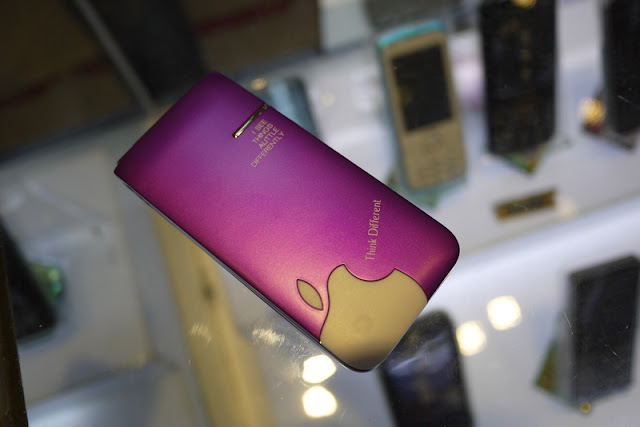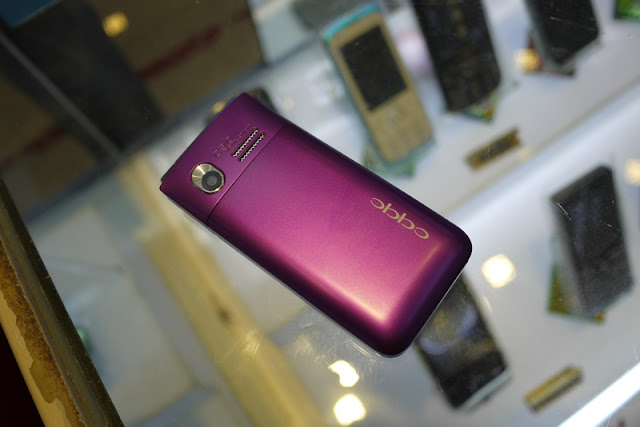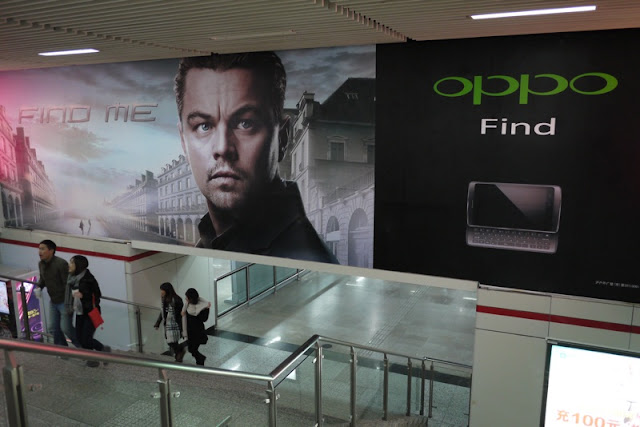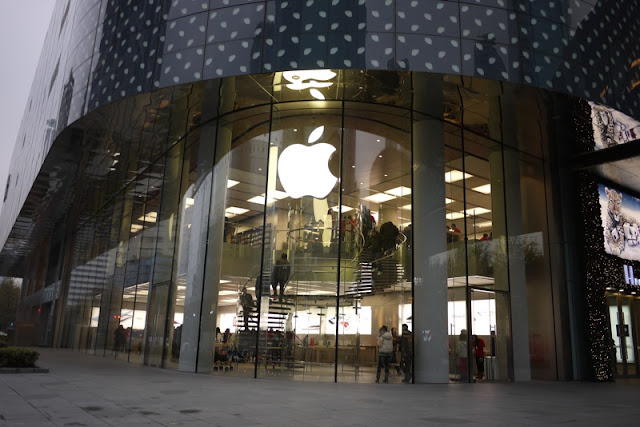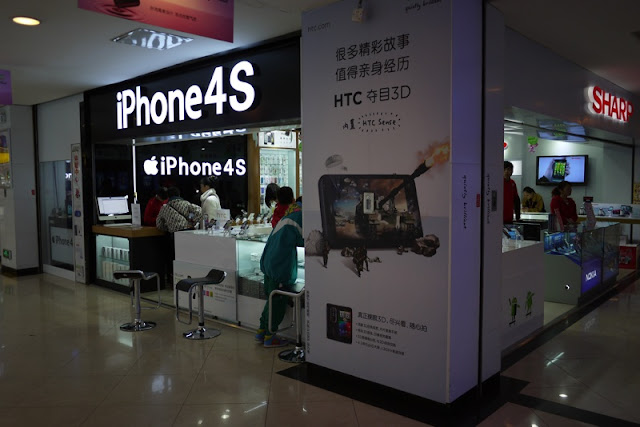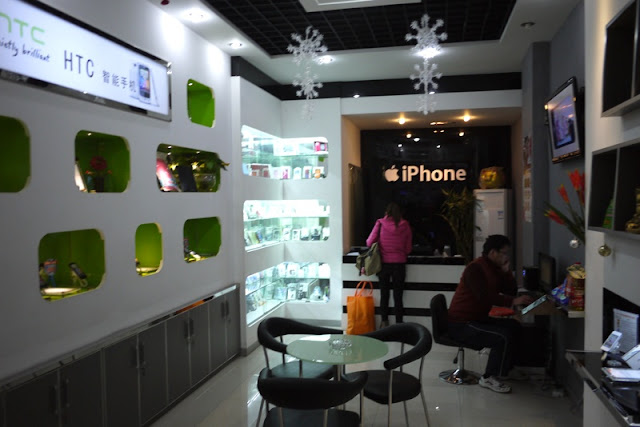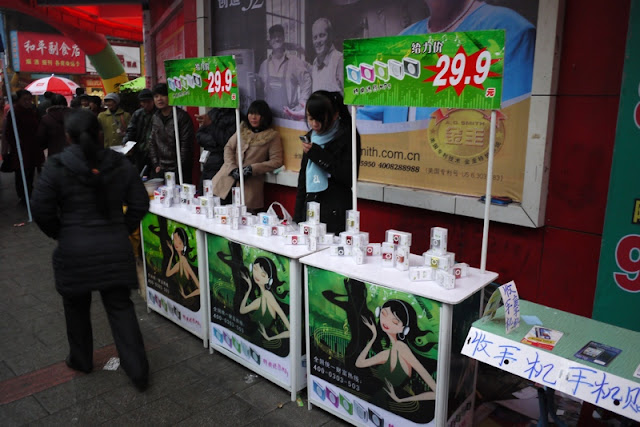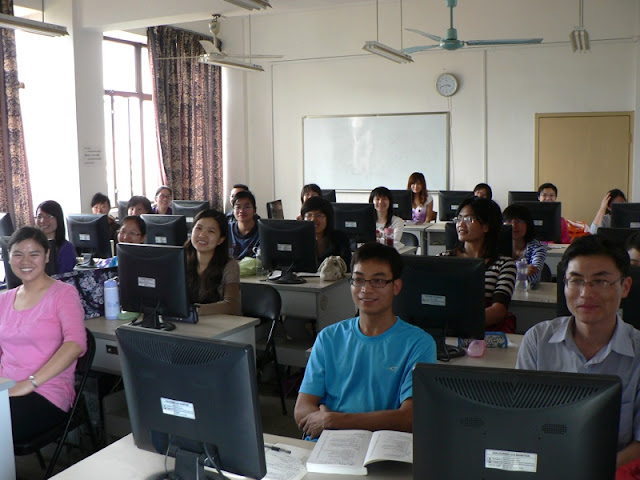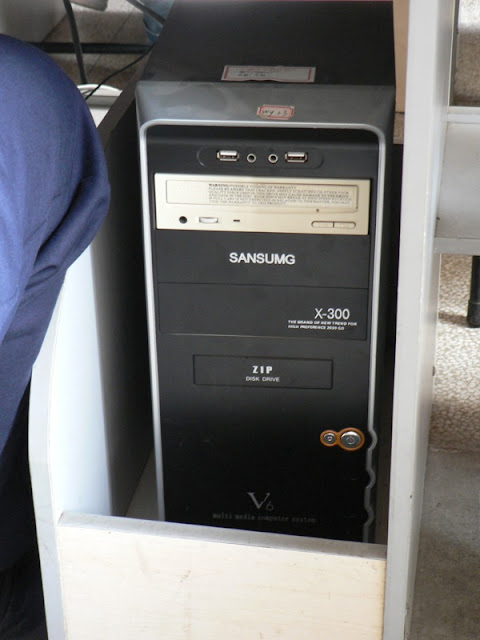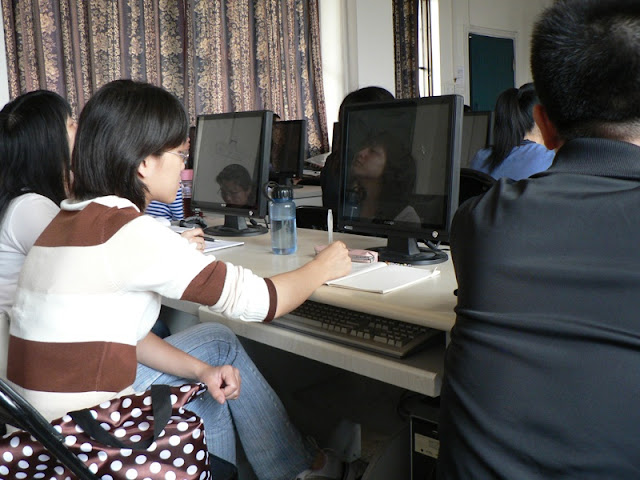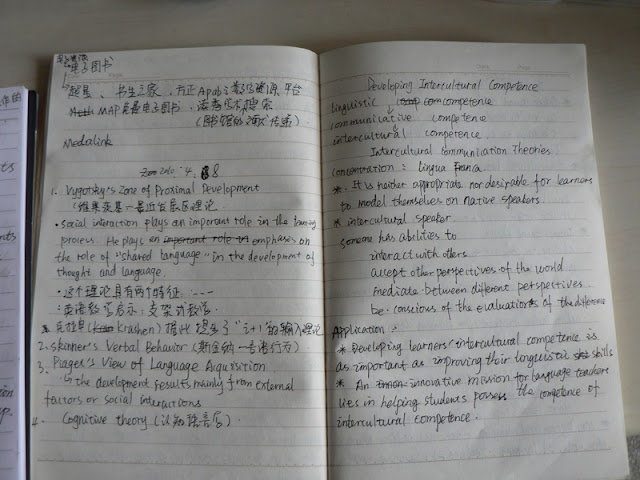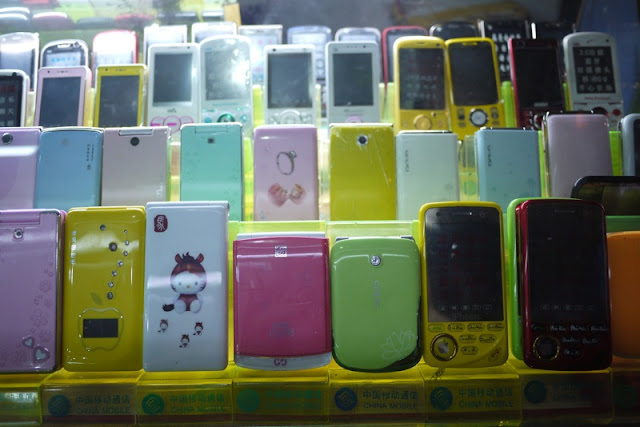Updates at end
An earlier post here provided an overview of the "fake" Apple stores, including iPhone stores, I saw in a number of cities in Southeast China. Another post shared photos of a variety of other mobile phone stores in Chengdu, Sichuan province.
Although I have included photos of a variety of stores, at least one company may feel left out. If so, Google can now perk up. I saw this Android Store after I took a random bus to Nanping in Zhuhai, Guangdong province:
"名流智能手机体验店", which is under the word "Android" on the store's sign, can be literally translated as "Celebrities Smartphone Experience Store". In short, if you want to be like a celebrity (or you are celebrity) this is presumably the place for you. The idea of an Android "experience store" reminded me that several months ago in Melbourne, Australia Google opened its first "Androidland". Mike Isaac on Wired described the store:
Maybe some celebrities in Zhuhai demand Apple products. However, Apple lists only one authorized retailer in Zhuhai. Of no surprise to me, its address is nowhere near the above store and it does not have "Android" in its name.
After scratching an Android store off my list, I will now keep my eyes open for another brand. After all, Windows Phone 7 officially launched in China today. That could mean some additional interesting stores are on the way.
UPDATE 1: More on this store in the more recent post "Inside the Android Store in Zhuhai, China".
UPDATE 2: See in what ways this Android store is not unique in the more recent post "Nokia Stores Selling a Variety of Phones in Nanping, Zhuhai"
UPDATE 3: See what I discover when I visit the store several months later in the post "The Fate of the Android Store in Zhuhai, China"
UPDATE 4: About a year and half after my first visit, much more had changed—see "The Fate of the Android Store in Zhuhai, China: Part II".
Disclosure: I previously worked as a user experience researcher in Microsoft China's Mobile Services China group. This exploration was not conducted as paid work nor at the request of any company.
An earlier post here provided an overview of the "fake" Apple stores, including iPhone stores, I saw in a number of cities in Southeast China. Another post shared photos of a variety of other mobile phone stores in Chengdu, Sichuan province.
Although I have included photos of a variety of stores, at least one company may feel left out. If so, Google can now perk up. I saw this Android Store after I took a random bus to Nanping in Zhuhai, Guangdong province:
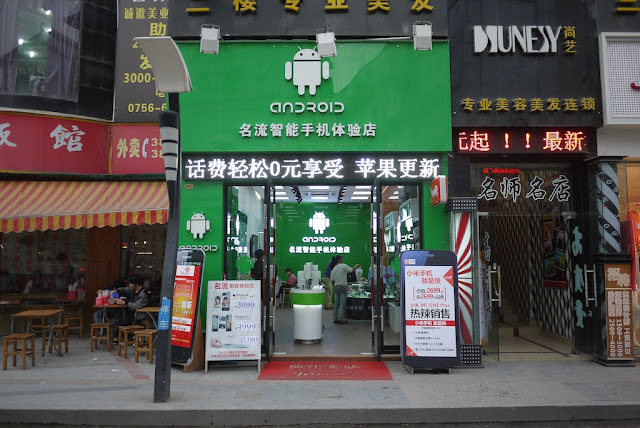 |
| Android store in Nanping, Zhuhai |
"名流智能手机体验店", which is under the word "Android" on the store's sign, can be literally translated as "Celebrities Smartphone Experience Store". In short, if you want to be like a celebrity (or you are celebrity) this is presumably the place for you. The idea of an Android "experience store" reminded me that several months ago in Melbourne, Australia Google opened its first "Androidland". Mike Isaac on Wired described the store:
Created in collaboration with Android device manufacturers, “Androidland” showcases the many different devices that run Google’s operating system in a fun, Android-themed environment. And rather than merely hawking the devices, special displays and gaming kiosks aim to inform potential buyers about how Android works, and what devices may be best for them.Perhaps the owner of the store in Nanping was inspired by Androidland. As far as I know, Google has not opened any official stores in China, so this could also be another opportunity for a foreign company to be inspired by local design (in this case "store design") in China. It could also be another opportunity for a trademark dispute. Whatever the case, I doubt Google would be thrilled with all of the choices made by this Android store owner. For example, in addition to a variety of Android-based mobile phones the store also sold Apple products such as iPhones, iPads, and computers (no ifads for sale, though).
 |
| Sign for iPhones and an iPhone accessory display case at the Android store |
Maybe some celebrities in Zhuhai demand Apple products. However, Apple lists only one authorized retailer in Zhuhai. Of no surprise to me, its address is nowhere near the above store and it does not have "Android" in its name.
After scratching an Android store off my list, I will now keep my eyes open for another brand. After all, Windows Phone 7 officially launched in China today. That could mean some additional interesting stores are on the way.
UPDATE 1: More on this store in the more recent post "Inside the Android Store in Zhuhai, China".
UPDATE 2: See in what ways this Android store is not unique in the more recent post "Nokia Stores Selling a Variety of Phones in Nanping, Zhuhai"
UPDATE 3: See what I discover when I visit the store several months later in the post "The Fate of the Android Store in Zhuhai, China"
UPDATE 4: About a year and half after my first visit, much more had changed—see "The Fate of the Android Store in Zhuhai, China: Part II".
Disclosure: I previously worked as a user experience researcher in Microsoft China's Mobile Services China group. This exploration was not conducted as paid work nor at the request of any company.



